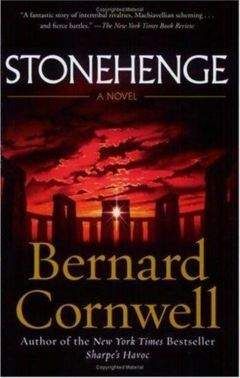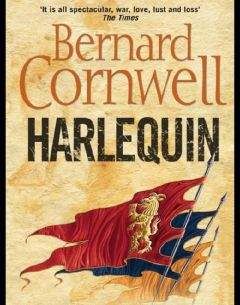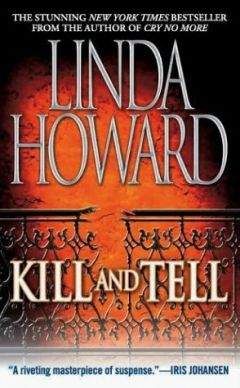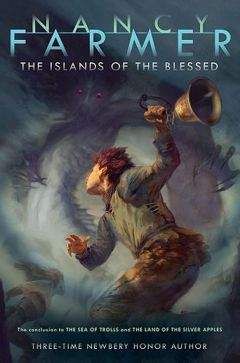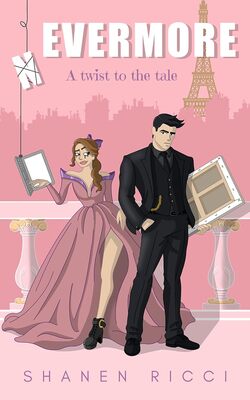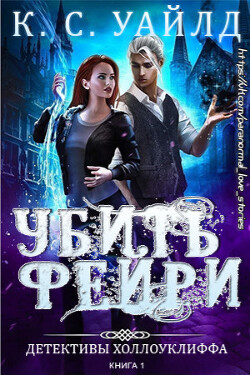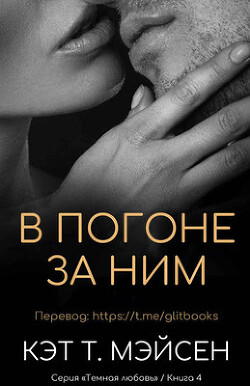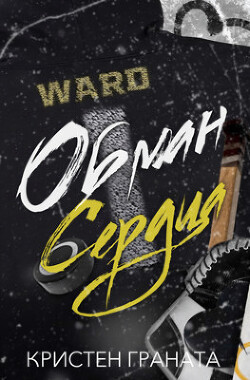Bernard Cornwell - The Grail Quest 2 - Vagabond
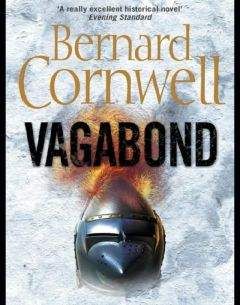
Помощь проекту
The Grail Quest 2 - Vagabond читать книгу онлайн
Thomas was not sure what Robbie was talking about, but he followed anyway; he just had time to sling his bow again and draw the sword a second time before Robbie smashed the door down with his mail-clad shoulder and plunged into the darkness.
'Come here, you English bastard!' he shouted.
'You want to be killed?' Thomas roared at him. 'You're fighting for the goddamn English!'
Robbie swore at that reminder, then Thomas saw a shadow to his right, only a shadow, and he swung his sword that way. It clanged against another sword and Robbie was screaming in the dusty_ dark and the man was shouting at them in French and Thomas pulled back, but Robbie just slammed his sword down once, twice, and the blade chopped through bone and flesh and there was a crash as an armoured man fell onto the upper millstone. 'What the hell was he saying to me?' Robbie wanted to know.
'He was trying to surrender.' A voice spoke from across the mill and Thomas and Robbie both spun towards the sound, their swords banging against the wooden tangle of joists, beams, cogwheels and axles, and then the unseen man called out again. 'Whoa, boys, whoa! I'm English.' There was a thump as an arrow struck the outside wall. The furled sails tugged against their tethers and made the wooden machinery squeal and shudder. More arrows thumped into the boards. 'I'm a prisoner,' the man said.
'You're not now,' Thomas said.
'I suppose not.' The man climbed over the millstones and pushed open the door and Thomas saw he was middle-aged with grey hair. 'What's happening?' the man asked.
'We're gralloching the devils,' Robbie said.
'Pray God you are.' The man turned and offered his hand to Robbie. 'I'm Sir Thomas Dagworth, and I thank you both.' He drew his sword and ducked out into the moonlit night, and Robbie stared at Thomas.
'Did you hear that?'
'He said thank you,' Thomas said.
'Aye, but he said he was Sir Thomas Dagworth!'
'Then maybe he was?'
'So what the hell was he doing in here?' Robbie asked, before taking hold of the man he had killed and, with much effort and the clank of armour against stone and timber, dragged him to the door where the fires offered light. The man had discarded his helmet and Robbie's sword had split his skull, but under the gore there was the glint of gold and Robbie dragged a chain from beneath the man's breastplate. 'He must have been an important fellow,' Robbie said, admiring the gold chain, then he grinned at Thomas.
'We'll split it later, eh?'
'Split it?'
'We're friends, aren't we?' Robbie asked, then pushed the gold under his haubergeon before shoving the corpse back into the mill. 'Valuable armour that,' he said. 'We'll come back when it's over and hope no bastard has stolen it.'
There was tangled, bloody horror in the encampment now. Survivors of Sir Thomas Dagworth's attack still fought, notably the archers in the wagon park, but as the town's garrison swept through the tents they re-leased prisoners or brought other survivors out of the dark places where they had been hiding. Charles's crossbowmen, who could have stemmed the garrison's attack, were mostly fighting against the English archers in the wagon park. The Genoese were using their huge pavises as shelters, but the new attackers came from behind and the crossbowmen had nowhere to hide as the long arrows hissed through the night. The war bows sang their devil's melody, ten arrows flying to every quarrel shot, and the crossbowmen could not endure the slaughter. They fled. The victorious archers, reinforced now by the men who had been among the wagons, turned back to the shelters and tents where a deadly game of hide and seek was being played in the dark avenues between the canvas walls, but then a Welsh archer discovered that the enemy could be flushed out if the tents were set on fire. Soon there were smoke and flames spewing all across the encampment and enemy soldiers were running from the fires onto the arrows and blades of the incendiarists.
Charles of Blois had retreated from the windmill, reckoning his position on the hill made him conspicuous, and he had tried to rally some knights in front of his own sumptuous tent, but an overwhelming rush of townsmen had swept those knights underfoot and Charles watched, appalled, as butchers, coopers, wheelwrights and thatchers massacred their betters with axes, cleavers and reaping hooks. He had hastily retreated into his tent, but now one of his retainers unceremoniously pulled him towards the back entrance.
'This way, your grace.'
Charles shook off the man's hand. 'Where can we go?' he asked plaintively.
'We'll go to the southern camp, sir, and bring men back to help.'
Charles nodded, reflecting that he should have ordered that himself and regretting his insistence that none of his men leave their encampments. Well over half his army was in the other three camps, all of them close by and all of them eager to fight and more than capable of sweeping this disorganized horde aside, yet they_ were obeying his orders and standing tight while his encampment was put to the sword. 'Where's my trumpeter?' he demanded.
'Sir? I'm here, your grace! I'm here.' The trumpeter had miraculously survived the fight and stayed close to his lord.
'Sound the seven blasts,' Charles ordered.
'Not here!' a priest snapped and, when Charles looked offended, made a hasty explanation. 'It will attract the enemy, your grace. After two blasts they'll be onto us like hounds!'
Charles acknowledged the wisdom of the advice with a curt nod. A dozen knights were with him now and they made a formidable force in this night of fractured battle. One of them peered from the tent and saw flames searing the sky and knew the Duke's tents would be fired soon. 'We must go, your grace,' he insisted. 'we must find our horses.'
They left the tent, hurrying across the patch of beaten grass where the Duke's sentinels usually stood, and then an arrow flickered from the dark to glance off a breast-plate. Shouts were suddenly loud and a rush of men came from the right and so Charles retreated to his left, which took him back up the slope towards the firelit windmill, and then a shout announced that he had been seen and the first arrows slashed up the hill.
'Trumpeter!' Charles shouted. 'Seven blasts! Seven blasts!'
Charles and his men, barred from reaching their horses, now had their backs against the mill's apron, which was stuck with scores of white-feathered arrows. Another arrow spitted a man in the midriff, drilling through his mail, piercing his belly and the mail on his back to pin him to the mill's boards, then an English voice roared at the archers to stop shooting. 'It's their Duke!' the man roared, 'it's their Duke! We want him alive! Stop shooting! Bows down!'
The news that Charles of Blois was cornered at the mill prompted a growl from the attackers. The arrows stopped flying and Charles's battered, bleeding men-at-arms who were defending the hill stared down the slope to see, just beyond the light of the mill's two fires, a mass of dark creatures prowling like wolves. 'God help us,' a priest said in a scared voice.
'Trumpeter!' Charles of Blois snapped.
'Sir,' the trumpeter acknowledged. He had found his instrument's mouthpiece mysteriously plugged by earth. He must have fallen, though he did not remember doing so. He shook the last of the soil out of the silver mouth-piece, then put the trumpet to his mouth and the first blast sounded sweet and loud in the night. The Duke drew his sword. He only had to defend the mill long enough for his reinforcements to come from the other camps and sweep this impertinent rabble into hell. The second trumpet note rang out. Thomas heard the trumpet, turned and saw the flash of silver by the mill. then he saw the reflection of flame-light rippling off the instrument's bell as the trumpeter raised it to the moon for the third time. Thomas had heard no order to stop shooting arrows and so he hauled his bow's cord back, twitched his left hand up a fraction and released. The arrow whipped over the heads of the English men-at-arms and struck the trumpeter just as he took breath for the third blast and the air hissed and bubbled out of his pierced lung as he spilled sideways onto the turf. The dark prowling things at the hill's base saw the man fall and suddenly charged.
No help came to Charles from the three remaining fortresses. They had heard two trumpet blasts, but only two, and they reckoned Charles must be winning; besides. they had his strict and constantly repeated orders to stay where they were on pain of losing out when the conquered lands were distributed among the victors. So they did stay, watching the smoke boil out of the flames and wondering what happened in the large eastern encampment.
Chaos was happening. This fight, Thomas reckoned, was like the attack on Caen: unplanned, disordered and utterly brutal. The English and their allies had been keyed up, nervous, expecting defeat, while Charles's men had been expecting victory – indeed they had gained the early victory – but now the English nervousness was being turned into a maddened, bloody, vicious assault and the French and Bretons were being harried into terror. A ragged clash sounded as the English men-at-arms slammed into Charles's men defending the windmill. Thomas wanted to join that fight, but Robbie suddenly pulled at his mail sleeve. 'Look!' Robbie was pointing back into the burning tents. Robbie had seen three horsemen in plain black sur-coats and with them, on foot, a Dominican. Thomas saw the white and black robes and followed Robbie through the tents, trampling over a collapsed spread of blue and white canvas, past a fallen standard, running between two fires and then across an open space that whirled with smoke and burning scraps of flying cloth. A woman with a dress half torn away screamed and ran across their path and a man scattered fire with his boots as he pursued her into a turfroofed hut. For a moment they lost sight of the priest, then Robbie saw the black and white robes again: the Dominican was trying to mount an unsaddled horse that the men in black surcoats held for him. Thomas drew his bow, let the arrow fly and saw it bury itself up to its feathers in the horse's breast; the beast reared up, yellow hooves flailing, and the Dominican fell backwards. The men in black surcoats galloped away from the bow's threat and the priest, abandoned, turned and saw his pursuers and Thomas recognized de Taillebourg, God's torturer. Thomas screamed a challenge and drew the bow again, but de Taillebourg ran towards some remaining tents. A Genoese crossbowman suddenly appeared, saw them, raised his weapon and Thomas let the cord go. The arrow slashed the man's throat, spilling blood down his red and green tunic. The woman screamed inside the shelter, then was abruptly silenced as Thomas followed Robbie to where the Inquisitor had disappeared among the tents. The door flap of one was still swinging and Robbie, sword drawn, thrust the canvas aside and ducked into what proved to be a chapel.
De Taillebourg was standing at the altar with its white Easter frontal. A crucifix stood on the altar between two flickering candles. The camp outside was an uproar of screams and pain and arrows, of horses whimpering and men shouting, but it was oddly calm in the make-shift chapel.
'You bastard,' Thomas said, drawing his sword and advancing on the Dominican, 'you goddamn stinking turd-faced piece of priestly shit.'
Bernard de Taillebourg had one hand on the altar. He raised the other to make the sign of the cross. 'Dominus t'ohiscum,' he said in his deep voice. An arrow scraped over the tent's roof with a high-pitched scratching sound and another whipped through a side wall and span down behind the altar.
'Is Vexille with you?' Thomas demanded.
'God's blessings on you, Thomas,' de Taillebourg said. He was fierce-faced, stern, eyes hard, and he made the sign of the cross towards Thomas, then stepped back as Thomas raised the sword.
'Is Vexille with you?' Thomas demanded again.
'Can you see him?' the Dominican asked, peering about the chapel, then smiled. No, Thomas, he's not here. He's gone into the dark. He rode to fetch help and you cannot kill me.'
'Give me a reason,' Robbie said, 'because you killed my brother, you bastard.'
De Taillebourg looked at the Scotsman. He did not recognize Robbie, but he saw the anger and offered him the same blessing he had given Thomas. 'You cannot kill me,' he said after he had made the sign of the cross, 'because I am a priest, my son, I am God's anointed, and your soul will be damned through all time if you so much as touch me.'
Thomas's response was to lunge his sword at de Taillebourg's belly, forcing the priest hard back against the altar. A man screamed outside, the sound faltering and fading, ending in a sob. A child wept inconsolably, her breath coming in great gasps, and a dog barked frantic-ally. The light of the burning tents was lurid on the chapel's canvas walls.
'You are a bastard,' Thomas said, 'and I don't mind killing you for what you did to me.'
'What I did!' De Taillebourg's anger flared like the fires outside. 'I did nothing!' He spoke in French now. 'Your cousin begged me to spare you the worst and so I did. One day, he said, you would be on his side! One day you would join the side of the Grail! One day you would be on God's side and so I spared you, Thomas. I left you your eyes! I did not burn your eves!'
'I'll enjoy killing you,' Thomas said, though in truth he was nervous of attacking a priest. Heaven would be watching and the recording angel's pen would be writing letters of fire in a great book.
'And God loves you, my son,' de Taillebourg said gently, 'God loves you. And God chastises whom he loves.'
'What's he saying?' Robbie interrupted.
'He's saying that if we kill him,' Thomas said, 'our souls are damned.'
'Till another priest undamns them,' Robbie said. 'There ain't a sin done on earth that some priest won't absolve if the price is right. So stop talking to the bastard and just kill him.' He advanced on de Taillebourg, sword raised, but Thomas held him back.
'Where's my father's book?' Thomas asked the priest. 'Your cousin has it,' de Taillebourg replied. 'I promise you, your cousin has it.'
'Then where is my cousin?'
'I told you, he rode away to fetch help,' de Taillebourg said, 'and now you must go too, Thomas. You must leave me here to pray.'
Thomas almost obeyed, but then he remembered his pathetic gratitude to this man when he had ceased the torture, and the memory of that gratitude was so sham-ing, so painful, that he suddenly shuddered and, almost without thinking, swung the sword at the priest.
'No!' de Taillebourg shouted, his left arm cut to the bone where he had tried to defend himself from Thomas's sword.
'Yes.' Thomas said, and the rage was consuming him, filling him, and he cut again and Robbie was beside him, stabbing with his sword, and Thomas swung a third time, but so lavishly that his blade got tangled with the tent roof.
De Taillebourg was swaying now. 'You can't kill me!' he shouted. 'I'm a priest!' He screamed that last word and was still screaming as Robbie chopped Sir William Douglas's sword into his neck. Thomas disentangled his own blade. De Taillebourg, the front of his robes soaked with blood, was staring at him with astonishment, then the priest tried to speak and could not, and the blood was spreading through the weave of his robes with an extraordinary swiftness. He fell to his knees, still trying to speak, and Thomas's sword blow took him on the other side of his neck, and more blood spurted out to slash drops across the white altar frontal. De Taillebourg looked up, this time with puzzlement on his face, then Robbie's last blow killed the Dominican, tearing his windpipe out of his neck. Robbie had to leap back to avoid the spray of blood. The priest twitched and in his death throes his left hand pulled the blood-drenched frontal off the altar, spilling candles and cross. He made a rattling noise, twitched and was still.
